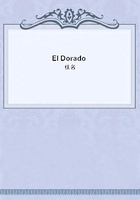
第4章
"Yes. The new decree. The agents of the Committee of General Security, of whom Heron is the chief, have from to-day powers of domiciliary search; they have full powers to proceed against all enemies of public welfare. Isn't that beautifully vague? And they have absolute discretion; every one may become an enemy of public welfare, either by spending too much money or by spending too little, by laughing to-day or crying to-morrow, by mourning for one dead relative or rejoicing over the execution of another. He may be a bad example to the public by the cleanliness of his person or by the filth upon his clothes, he may offend by walking to-day and by riding in a carriage next week; the agents of the Committee of General Security shall alone decide what constitutes enmity against public welfare. All prisons are to be opened at their bidding to receive those whom they choose to denounce; they have henceforth the right to examine prisoners privately and without witnesses, and to send them to trial without further warrants; their duty is clear--they must 'beat up game for the guillotine.' Thus is the decree worded; they must furnish the Public Prosecutor with work to do, the tribunals with victims to condemn, the Place de la Revolution with death-scenes to amuse the people, and for their work they will be rewarded thirty-five livres for every head that falls under the guillotine Ah! if Heron and his like and his myrmidons work hard and well they can make a comfortable income of four or five thousand livres a week. We are getting on, friend St. Just--we are getting on."
He had not raised his voice while he spoke, nor in the recounting of such inhuman monstrosity, such vile and bloodthirsty conspiracy against the liberty, the dignity, the very life of an entire nation, did he appear to feel the slightest indignation; rather did a tone of amusement and even of triumph strike through his speech; and now he laughed good-humouredly like an indulgent parent who is watching the naturally cruel antics of a spoilt boy.
"Then from this hell let loose upon earth," exclaimed St. Just hotly, "must we rescue those who refuse to ride upon this tide of blood."
His cheeks were glowing, his eyes sparkled with enthusiasm. He looked very young and very eager. Armand St. Just, the brother of Lady Blakeney, had something of the refined beauty of his lovely sister, but the features though manly--had not the latent strength expressed in them which characterised every line of Marguerite's exquisite face. The forehead suggested a dreamer rather than a thinker, the blue-grey eyes were those of an idealist rather than of a man of action.
De Batz's keen piercing eyes had no doubt noted this, even whilst he gazed at his young friend with that same look of good-humoured indulgence which seemed habitual to him.
"We have to think of the future, my good St. Just," he said after a slight pause, and speaking slowly and decisively, like a father rebuking a hot-headed child, "not of the present. What are a few lives worth beside the great principles which we have at stake?"
"The restoration of the monarchy--I know," retorted St. Just, still unsobered, "but, in the meanwhile--"
"In the meanwhile," rejoined de Batz earnestly, "every victim to the lust of these men is a step towards the restoration of law and order--that is to say, of the monarchy. It is only through these violent excesses perpetrated in its name that the nation will realise how it is being fooled by a set of men who have only their own power and their own advancement in view, and who imagine that the only way to that power is over the dead bodies of those who stand in their way. Once the nation is sickened by these orgies of ambition and of hate, it will turn against these savage brutes, and gladly acclaim the restoration of all that they are striving to destroy. This is our only hope for the future, and, believe me, friend, that every head snatched from the guillotine by your romantic hero, the Scarlet Pimpernel, is a stone laid for the consolidation of this infamous Republic."
"I'll not believe it," protested St. Just emphatically.
De Batz, with a gesture of contempt indicative also of complete self-satisfaction and unalterable self-belief, shrugged his broad shoulders. His short fat fingers, covered with rings, beat a tattoo upon the ledge of the box.
Obviously, he was ready with a retort. His young friend's attitude irritated even more than it amused him. But he said nothing for the moment, waiting while the traditional three knocks on the floor of the stage proclaimed the rise of the curtain. The growing impatience of the audience subsided as if by magic at the welcome call; everybody settled down again comfortably in their seats, they gave up the contemplation of the fathers of the people, and turned their full attention to the actors on the boards.